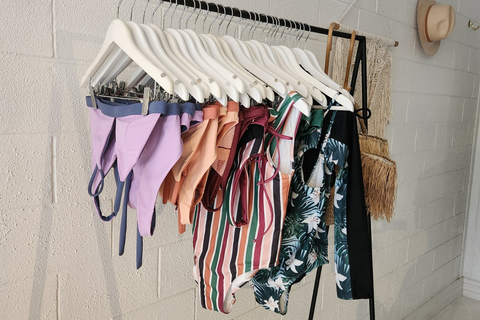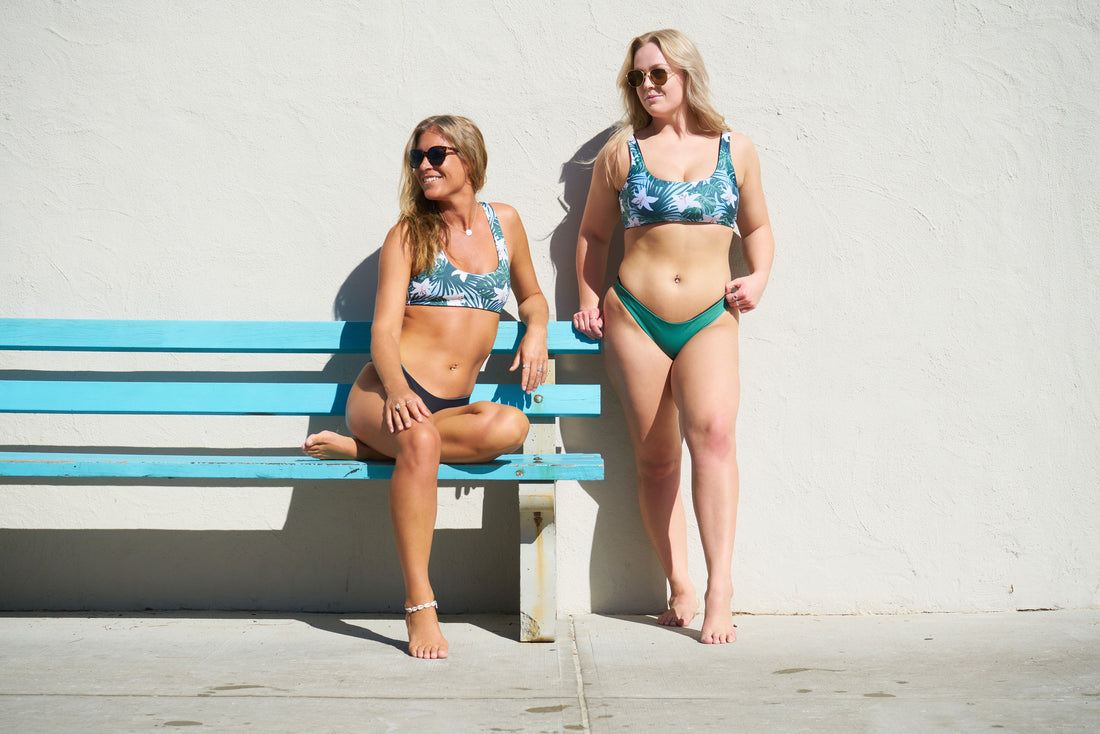Traditionally, swimwear has been made from synthetic fabrics like polyester and nylon. This is because the qualities of synthetic fabrics allow the products to have the stretch, durability, and resistance necessary to hold up in saltwater, chlorine and sunlight. However, synthetic fabrics come at a cost to the environment, as they require massive amounts of energy and petroleum for production and create non-biodegradable waste in the process. Unfortunately natural fabrics generally absorb & retain too much water do a great job. With the shift in brands and consumers wanting to make more eco friendly fashion choices there are now a selection of fabrics available that are changing things for the better, developing a whole new category in the swimwear industry - sustainable swimwear.
The fashion industry is the second most polluting industry worldwide, coming in behind the oil industry in 1st place, due largely to the popularity of fast fashion. Fast fashion is the business model of replicating recent trends and high-fashion designs, mass-producing them at a low cost, and bringing them to retail stores quickly while demand is at its highest. This sees a massive turn over of garments, many with short life spans. The average life of a garment in the UK is around 2 years. Therefore, an estimated $170 million worth of clothing ends up in landfill every year. This throwaway culture sees majority of shops and brands constantly creating new designs, at minimal costs, with a lot of wastage.
Luckily the swimwear industry has seen a rise in ethical sustainable swimwear brands, using eco friendly swimwear fabrics, and moving away from the business model of fast fashion. Instead they are creating items that can be loved for longer, season after season, and then recycled at the end of their lives.
New innovative synthetic fabrics are creating new life out of materials by upcycling and recycling plastic waste that would otherwise pollute the Earth. This is taking plastic waste out of landfill, waterways and the ocean.

ECONYL® is one of the popular choices for sustainable swimwear, and what all Yindi & Salt fabrics are made from. The regenerated yarn is made into a buttery soft, long lasting eco friendly swimwear material. It’s exactly the same as brand new nylon and can be recycled, recreated and remoulded again and again. That means you can create new products and buy new products without having to use new resources.
ECONYL® have a 4 step regeneration system.
🐚 Rescue
The ECONYL® Regeneration System starts with rescuing
waste, like fishing nets, fabric scraps, carpet flooring and industrial
plastic all over the world. That waste is then sorted and cleaned to
recover all of the nylon possible.
🐚Regenerate
Through a radical regeneration and purification
process, the nylon waste is recycled right back to its original purity. That
means ECONYL® regenerated nylon is exactly the same as virgin nylon.
🐚 Remake
ECONYL® regenerated nylon is processed into yarns and
polymers for the fashion and interior industries.
🐚 Reimagine
The beauty of ECONYL® regenerated nylon is that it has the
potential to be recycled infinitely, without ever losing its quality. They believe
circular design is the future and using ECONYL® is our first step on that journey.
For every 10,000 tons of ECONYL® raw material they are able to save 70,000 barrels of crude oil for every 10,000 tonnes of fabric produced and avoids 57, 100 tonnes of CO2 eq. emissions. No waste, no new resources.
REPREVE is another eco friendly swimwear fabric made from recycled plastic water bottles. So far they have managed to recycle over 20 billion bottles!
Another fabric is recycled polyester, which is made of 100% recycled polyester from pre & post-consumer materials like plastic bottles. It’s a sustainable swimwear fabric option that's perfect for printing on.
Shop the range of Yindi & Salt sustainable swimwear.
Reversible bikinis, one pieces swimsuits and surf suits.
Designed for the sun, surf, and women with an adventurous soul.

